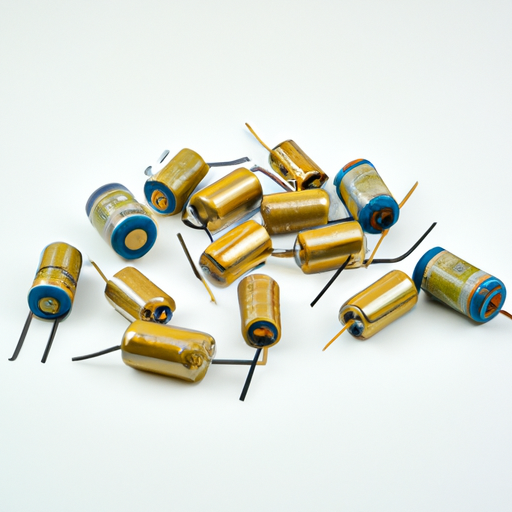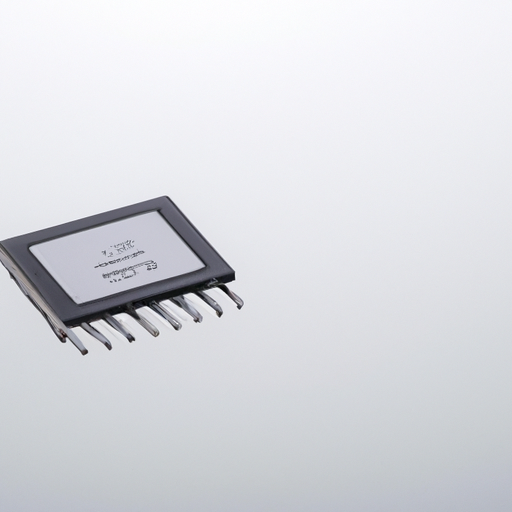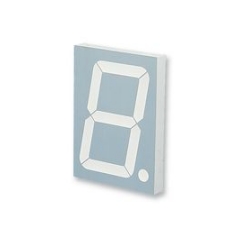What is the role of compensation capacitor products in practical applications?
The Role of Compensation Capacitor Products in Practical Applications
I. Introduction
In the realm of electrical engineering, compensation capacitors play a pivotal role in enhancing the performance and efficiency of electrical systems. These components are essential for various applications, from power factor correction to signal filtering. This article delves into the significance of compensation capacitors, their types, working principles, applications, benefits, challenges, and future trends in technology.
II. Understanding Compensation Capacitors
A. What are Compensation Capacitors?
Compensation capacitors are electrical components designed to store and release electrical energy. They are primarily used to improve the performance of electrical systems by compensating for reactive power, stabilizing voltage levels, and filtering signals.
1. Types of Compensation Capacitors
Fixed Capacitors: These capacitors have a predetermined capacitance value and are commonly used in power factor correction applications.
Variable Capacitors: These allow for adjustable capacitance values, making them suitable for tuning applications in radio frequency circuits.
Tuning Capacitors: Often used in communication systems, these capacitors help in adjusting the resonant frequency of circuits.
2. Key Characteristics
Capacitance Value: This indicates the amount of charge a capacitor can store, measured in farads (F).
Voltage Rating: This specifies the maximum voltage a capacitor can handle without failing.
Temperature Coefficient: This describes how the capacitance value changes with temperature, which is crucial for maintaining performance in varying environmental conditions.
B. How Compensation Capacitors Work
1. Basic Principles of Capacitance
Capacitance is the ability of a component to store electrical energy in an electric field. When a voltage is applied across a capacitor, it stores energy, which can be released when needed. This property is fundamental to the operation of compensation capacitors.
2. Role in AC and DC Circuits
In alternating current (AC) circuits, compensation capacitors help manage reactive power, which is essential for maintaining voltage levels and improving power factor. In direct current (DC) circuits, they can smooth out voltage fluctuations and provide energy storage.
III. Applications of Compensation Capacitors
A. Power Factor Correction
1. Definition and Importance
Power factor is a measure of how effectively electrical power is being converted into useful work output. A low power factor indicates poor efficiency, leading to higher energy costs and potential penalties from utility companies.
2. How Compensation Capacitors Improve Power Factor
Compensation capacitors can counteract the inductive effects of motors and transformers, thereby improving the overall power factor of the system. By providing reactive power locally, they reduce the demand on the electrical grid and enhance system efficiency.
B. Voltage Regulation
1. Role in Stabilizing Voltage Levels
Compensation capacitors help maintain stable voltage levels in electrical systems, which is crucial for the reliable operation of equipment. They can absorb voltage spikes and provide support during voltage sags.
2. Applications in Power Distribution Systems
In power distribution networks, compensation capacitors are used to improve voltage profiles, especially in long transmission lines where voltage drops can occur. They ensure that end-users receive a consistent voltage supply.
C. Signal Filtering
1. Importance in Communication Systems
In communication systems, compensation capacitors are vital for filtering out unwanted noise and ensuring signal integrity. They help maintain the quality of transmitted signals, which is essential for effective communication.
2. Use in Audio and RF Applications
In audio applications, capacitors are used to filter out high-frequency noise, allowing for clearer sound reproduction. In radio frequency (RF) applications, they help tune circuits to specific frequencies, enhancing performance.
D. Energy Storage
1. Role in Energy Storage Systems
Compensation capacitors can store energy for short periods, making them useful in energy storage systems. They can quickly release energy when needed, providing a buffer for fluctuating loads.
2. Applications in Renewable Energy Systems
In renewable energy systems, such as solar and wind, compensation capacitors help manage the variability of energy production. They can store excess energy generated during peak production times and release it during low production periods.
IV. Benefits of Using Compensation Capacitors
A. Enhanced System Efficiency
By improving power factor and stabilizing voltage levels, compensation capacitors enhance the overall efficiency of electrical systems. This leads to reduced energy losses and improved performance.
B. Reduced Energy Costs
With improved power factor and efficiency, businesses and consumers can experience lower energy bills. This is particularly important for industrial users who may face penalties for low power factor.
C. Improved Equipment Lifespan
Stable voltage levels and reduced energy losses contribute to the longevity of electrical equipment. Compensation capacitors help protect sensitive devices from voltage spikes and fluctuations.
D. Mitigation of Harmonics
Compensation capacitors can help reduce harmonic distortion in electrical systems, which can lead to overheating and inefficiencies. By filtering out harmonics, they improve the overall quality of the power supply.
E. Increased System Stability
By providing reactive power support and stabilizing voltage levels, compensation capacitors enhance the stability of electrical systems. This is crucial for preventing outages and ensuring reliable operation.
V. Challenges and Considerations
A. Selection Criteria for Compensation Capacitors
1. Capacitance Value and Tolerance
Choosing the right capacitance value is critical for achieving the desired performance. Tolerance levels must also be considered to ensure reliability.
2. Voltage Rating and Environmental Conditions
The voltage rating must match the application requirements, and environmental conditions such as temperature and humidity should be taken into account to prevent premature failure.
B. Potential Issues
1. Overvoltage and Overcurrent Risks
Improperly sized or installed compensation capacitors can lead to overvoltage and overcurrent conditions, potentially damaging equipment.
2. Aging and Degradation of Capacitors
Capacitors can degrade over time due to environmental factors and electrical stress. Regular monitoring and maintenance are essential to ensure continued performance.
C. Maintenance and Monitoring
1. Importance of Regular Inspections
Regular inspections of compensation capacitors are crucial for identifying potential issues before they lead to failures.
2. Techniques for Monitoring Performance
Techniques such as capacitance testing and thermal imaging can help monitor the performance of capacitors and identify any signs of degradation.
VI. Future Trends in Compensation Capacitor Technology
A. Advancements in Materials and Design
Ongoing research is focused on developing new materials and designs for compensation capacitors that enhance performance, reduce size, and improve reliability.
B. Integration with Smart Grid Technologies
As smart grid technologies continue to evolve, compensation capacitors will play a vital role in managing distributed energy resources and improving grid stability.
C. Role in Sustainable Energy Solutions
With the increasing focus on sustainability, compensation capacitors will be essential in optimizing the performance of renewable energy systems and enhancing energy efficiency.
VII. Conclusion
Compensation capacitors are integral components in modern electrical systems, providing numerous benefits such as improved efficiency, reduced energy costs, and enhanced equipment lifespan. As technology continues to advance, the role of compensation capacitors will only become more critical in addressing the challenges of energy management and sustainability. Continued research and development in this field will pave the way for innovative solutions that enhance the performance of electrical systems.
VIII. References
- Academic Journals
- Industry Reports
- Technical Manuals and Standards
In conclusion, understanding the role of compensation capacitors is essential for anyone involved in electrical engineering or energy management. Their applications span a wide range of industries, and their benefits are significant, making them a key component in the quest for more efficient and reliable electrical systems.







